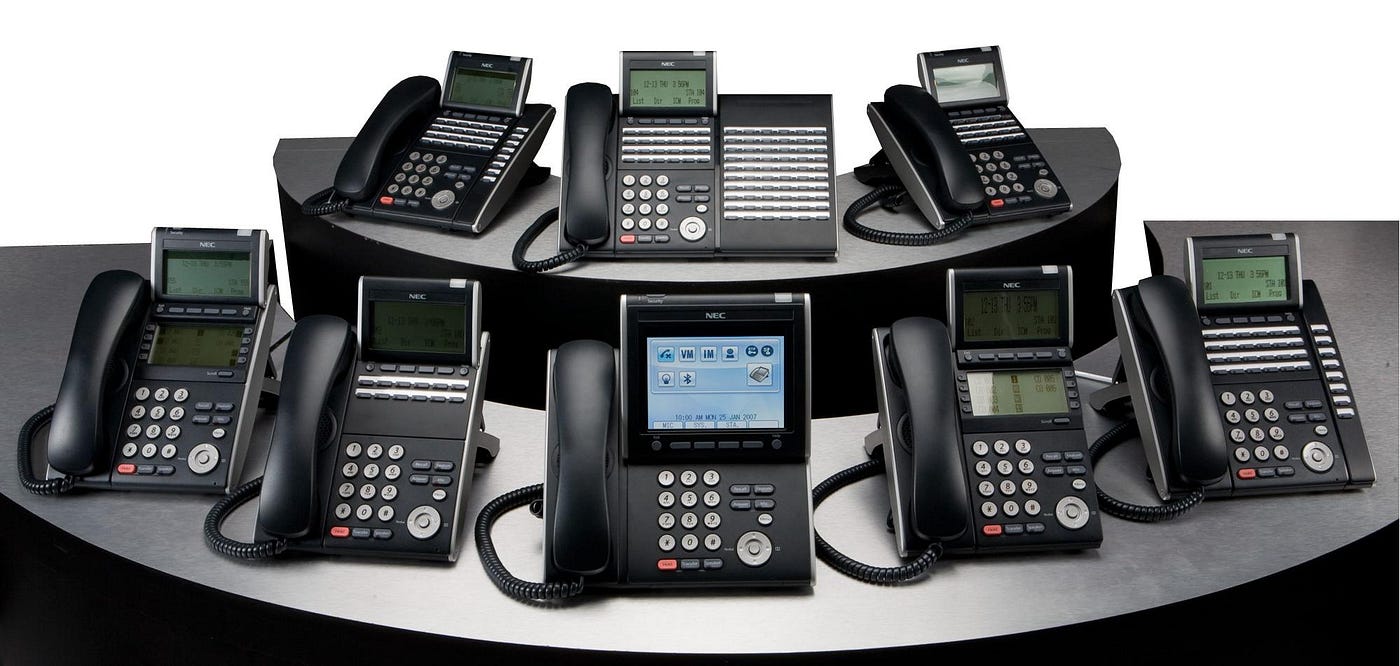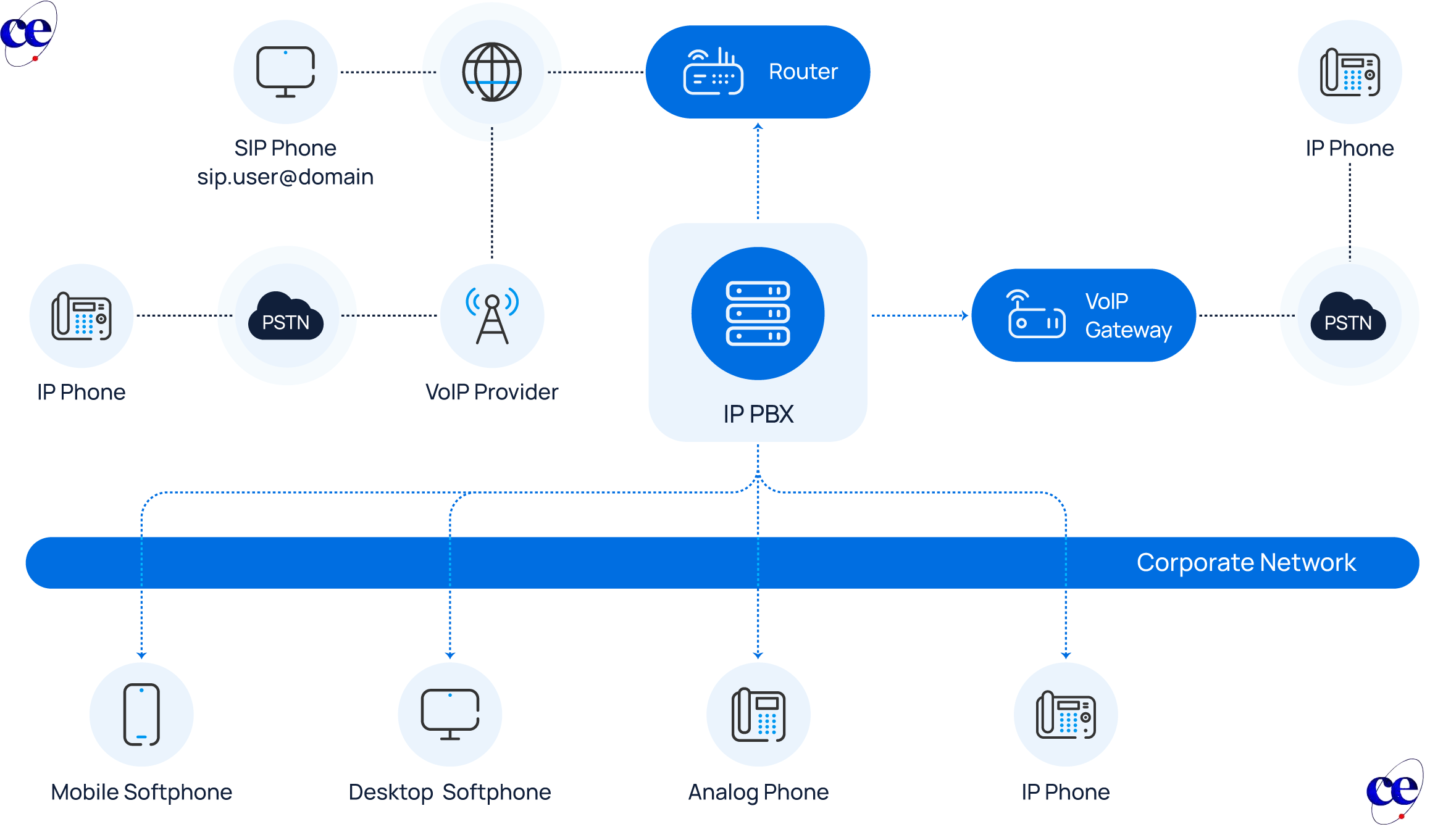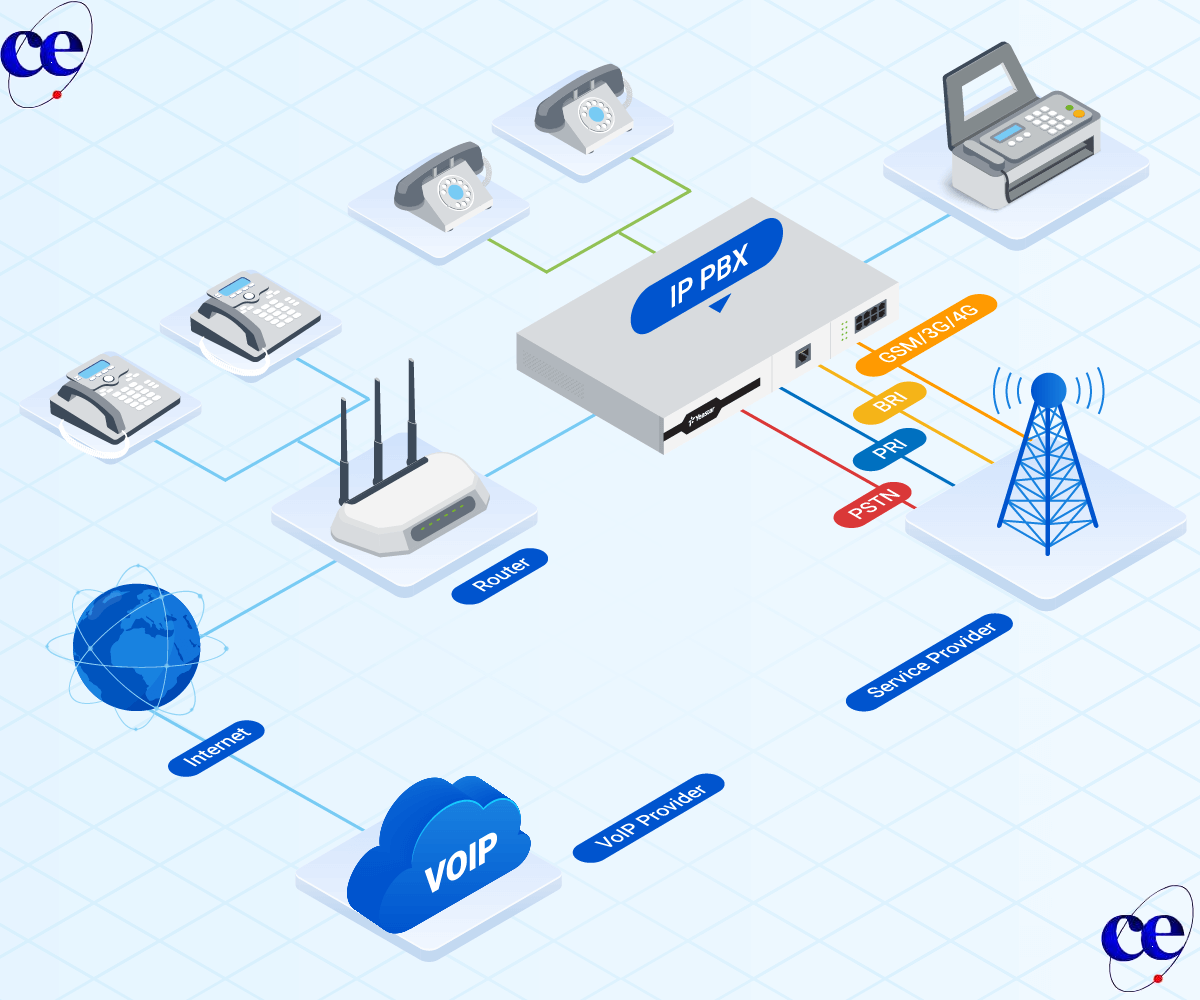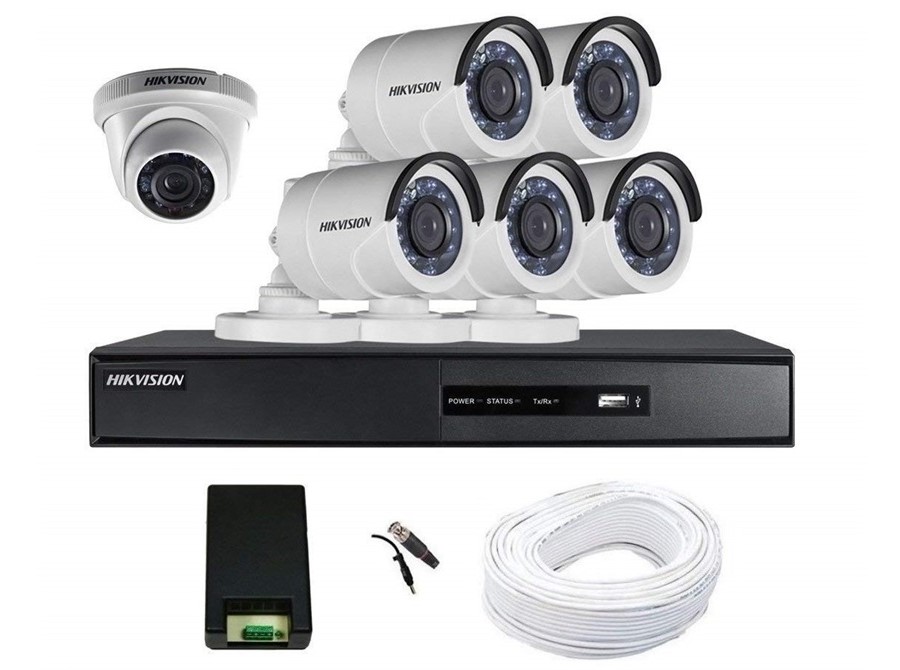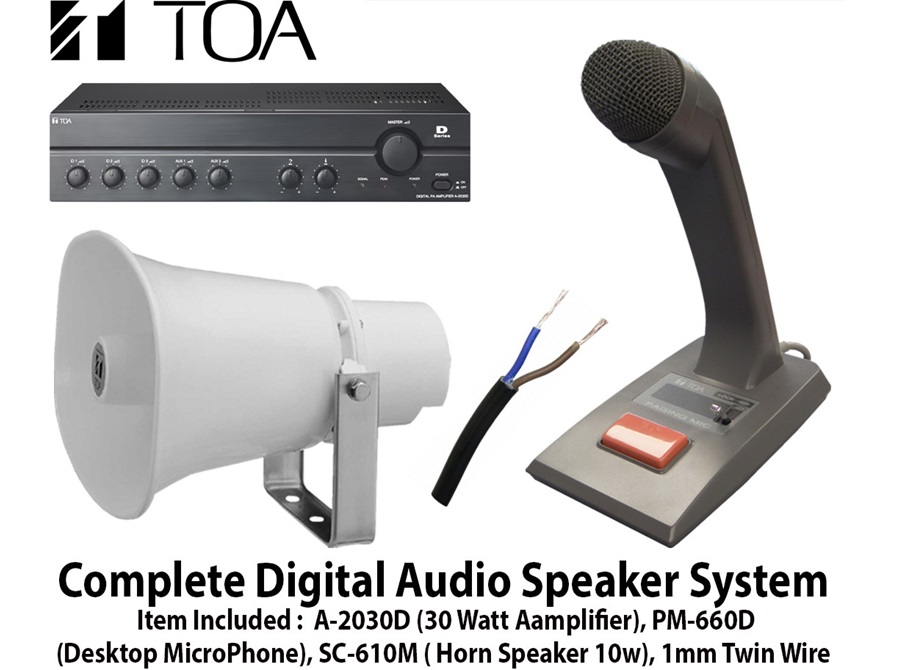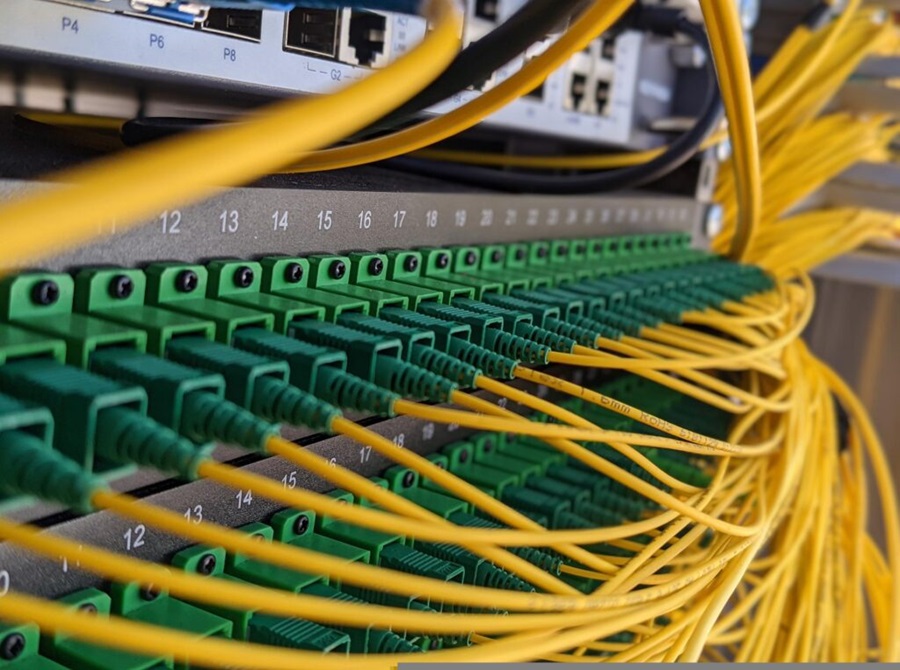Service : PBAX/PBX System
PBX is short for Private Branch Exchange System, a private telephone network used within a company or organization. If you’ve been searching for a phone system for your business, chances are you’ve been inundated with a lot of information.
This guide breaks down all the essentials you need to know about modern Private Branch Exchange (PBX) solutions. Even if you’ve never managed a PBX before, you can jump to the parts that matter to you.
PBX Phone System for Small Businesses to Enterprises
Trusted by over 500 plus users, California Electronics includes 20+ phone system features, visual call management, call center and more integrations that help you streamline communications and save big.
What is PBX (Private Branch Exchange)?
PBX is short for Private Branch Exchange, a telephone system within an enterprise that switches calls between users on local lines, while enabling all users to share a certain number of external phone lines. PBX allows users to call each other and is responsible for phone features like inbound and outbound calls, call forwarding, call transfer, call queue, auto-attendant, voicemail, etc.
A Private Branch Exchange (PBX) is a telephone system within an enterprise that switches calls between users on local lines, while enabling all users to share a certain number of external phone lines. It allows for the creation of internal telephone networks within organizations, facilitating communication through various channels like VoIP and ISDN
PBX systems operate by using either VoIP (Voice Over Internet Protocol), PSTN (analog landlines), or ISDN (digital phone lines). With a PBX, the telephone line coming into your business can be split into multiple lines, allowing you to support more telephones. Better yet, calls between users are free.
A complete PBX phone system network consists of various hardware and software components to provide voice connectivity. Whether you are using a cloud-based PBX or a hardware solution, your business telephone system should include at least three parts:
- Telephone Lines (Trunks): Either physical landlines (PSTN /ISDN) or virtual phone lines (VoIP Trunk/SIP Trunk) provided by ITSP (Internet Telephony Service Provider) or telecom provider.
- The Telephone Exchange (the Private Branch Exchange)
- Phone terminals: Either hardware such as analog phones and IP phones, or software apps (softphones) that run on computers or mobile devices, allowing users to make calls via the internet.
Additionally, you may need routers and VoIP gateways to interconnect different parts.
1. Analog PBX System
This is the traditional, intra-office telephone system. It is connected via Plain Old Telephone Service (POTS) lines to the PSTN (public switched telephone network). Phone calls, even fax transmissions are handled by the PBX using physical phone lines. The analog PBX phone system allows calls to be made and transferred within the location. They also handle the incoming and outgoing calls using outside lines.
Keep in mind that analog systems came before the Internet, and use traditional copper phone lines. This means they cannot use many of the modern-day features you might see in more advanced telephone systems such as multimedia services, converting voicemail to email, or remote working capabilities. Also, if your business grows, you may need to add new jacks and telephone wires to support additional employees. On the plus side, because traditional PBX systems are self-contained, connectivity is not impacted if the Internet were to go down.
2. IP PBX Phone System
VoIP or IP PBX represents a newer version of private branch exchange. It has the same functions as a traditional telephone system, but also provides many additional features such as unified communications, conference calling, and call center. In addition to that, it may be a more cost-effective option. Rather than using traditional phone lines, IP-based PBX systems operate by using the Internet protocol. Voice is converted into data that is transmitted over the Internet, then it is converted back to voice for the receiver.
IP PBX phone systems are further divided into two types: on-premises systems and cloud phone systems.
With an IP-based phone system, maintenance and growth are quite simple. You’ll also have access to unified communications features such as BOYD (Bring Your Own Device) mobility, video conferencing, and messaging, that analog PBX systems are incapable of. Besides, IP-based hosted or cloud phone system also works outside of a single location.
Many of the benefits of PBX phone systems depend on the type that you choose. For example, an analog PBX may be affordable and work fine for you if your business growth is relatively static. You can also count on your legacy phone system to stay up and running when other internet-based phone systems are down.
Benefits of On-site PBX
There are some perks to owning an on-site system PBX. These include:
- Low operational costs.
- Additional control through owning the equipment.
- Maintaining your relationship with your telephone company.
- No monthly or annual licenses or subscription fees.
- More ability to determine the level of security.
When selecting a PBX (Private Branch Exchange) phone system for your business, there are several key factors to consider to ensure you find the best solution for your organization’s unique needs. Here are some essential considerations to keep in mind:
Your Infrastructure
The best PBX phone system for your business may depend largely on your current infrastructure. Consider these questions:
- Do you have an in-house IT staff?
- Are they well-versed in telephony concepts such as SIP trunking?
- What solution are you using for telecom right now?
- Which legacy systems do you have to integrate with your new telephony solution?
- Do you need to keep your existing phone numbers?
- Do you work from a single office or many?
Verify that the PBX system is compatible with your existing hardware and software infrastructure. Look for a system that can easily scale up or down to accommodate changes in your workforce or operations.
Your Size and Projected Growth
Are you an SME or larger? Growing or shrinking? Will you be adopting any sort of technology solutions that will impact the number of lines you need, the type of service you need, or if you will need features like call routing, video conferencing, or mobile worker support? Small business communications and enterprise phone systems can differ significantly. Choosing the one that best fits your company’s growing needs over the next five years is crucial.
Your Budgets
There will be some costs with implementing any service. However, depending on your choices, something may be virtually free. For example, a hosted or on-premises VoIP PBX will allow you to add and remove lines easily at no cost. If you stick with an analog configuration, that means physical installation costs as well as paying for the new lines.
Operational Model
How does your business work? Most of your workforce might be in the office most of the time, or you may have plenty of field staff that needs connectivity in the outside world. Do you consider your workforce to be tech-forward, or more traditional?
Reach out to a VoIP PBX telephone provider with the answers to all of these questions in mind. They will be able to help you choose an option that best suits your needs.
What is the difference between PBX and VoIP?
PBX refers to the private telephone network within a company, managing internal and external communications. VoIP is the technology that enables voice communications over the internet. A PBX system can utilize either traditional phone lines or VoIP to connect calls, offering flexibility and scalability in its communication infrastructure.
Is PABX the same as PBX?
No, PABX is not the same as PBX. PABX stands for Private Automatic Branch Exchange, which is a type of phone system that uses automatic switching to route calls. PBX, on the other hand, is a broader term that encompasses various types of private telephone networks, including PABX.
How much does an PBX phone system cost?
The cost of a PBX phone system varies depending on the type and complexity of the setup. Traditional telephone systems can be expensive, involving substantial upfront costs for hardware and installation, as well as ongoing maintenance and software licenses. In contrast, IP PBX systems typically have lower initial costs and offer more flexible pricing models, which are a good fit for small businesses that handle many calls and require only a few calling features to work reliably.
Can I use my existing phone with a PBX system?
PBX systems usually require specific hardware, such as IP phones or desk phones, to function. Some can support softphones or mobile apps for remote work, allowing users to make and receive calls using their existing devices.
California Electronics Offers companies of all sizes a complete package for calls, video, messaging, and integrations, out of the box.

